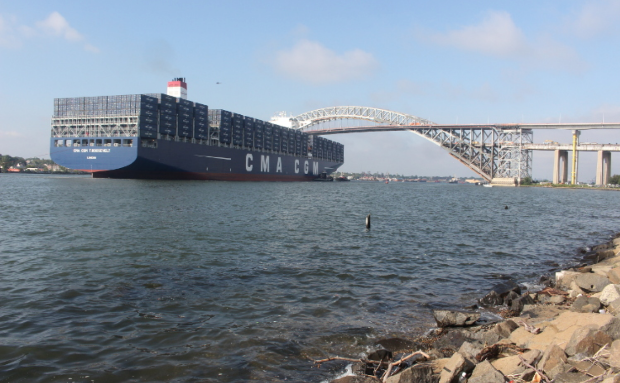|
Seven out of ten Americans consider foreign trade an economic opportunity, according to Gallup. You wouldn’t expect this given the protectionist rhetoric about “unfair” trade practices and “bad” trade deficits in the news regarding the North American Free Trade Agreement (NAFTA) and tariffs.
To avoid impoverishing Americans, trade uncertainty should quickly end by reducing trade barriers in NAFTA to maintain its net benefits and end tariffs to reap the benefits of the Trump tax cuts. Let’s be clear: NAFTA isn’t a perfect agreement and other countries have poor trade practices. For example, NAFTA would ideally be one sentence: “No trade barriers between the U.S., Mexico, and Canada.” Instead it’s more than 1,700 pages of exceptions and regulations that subjectively determine winners and losers. So, a renegotiated deal towards fewer trade barriers would help people benefit from trade. Also, intellectual property rights and currency manipulation issues in other countries, particularly China, could be problems needing attention. However, tariffs are unlikely to solve those problems, especially when private U.S. firms do business in China knowing they’ll be forced to fork over ideas but do it anyway because of the profitability available from very affordable labor. Instead, the Trump administration should rejoin the Trans-Pacific Partnership talks that include many of China’s trading partners and use its negotiation prowess to benefits Americans. Ultimately, these trade uncertainties plaguing entrepreneurs’ decisions defy the positive view that most Americans have of foreign trade and reduce many Americans opportunity to prosper. What’s often lost in this discussion is that countries don’t trade with each other, people do when they mutually benefit. It’s a reason that considering trade deficits a bad deal is nonsense. What’s true is that raising trade barriers will hurt people mutually benefiting along with many others from higher prices and fewer job opportunities. For instance, Texas has much to gain or lose from NAFTA renegotiations because of about $230 billion in imports and exports with its closest foreign neighbors and largest trade partners. NAFTA has helped Texas lead the nation in exports for 16 straight years and supported at least 300,000 jobs over five years. Not only would Texans suffer from a poor deal with our North American neighbors, but Americans would also hurt as Texas has created 24 percent of all civilian jobs added nationwide since the Great Recession. While it’s easier to blame others instead of flawed domestic policies, past mercantilist attempts to dictate foreign trade have failed. Understanding that people, not countries, trade to satisfy their desires is why trade balances don’t matter much. Really, the cumulative value of imports and exports tells how much people benefit from trade across borders. For instance, Americans import $2.9 trillion in goods and export $2.4 trillion for a trade deficit of about $500 billion in 2017. However, the real value of total trade is the cumulative $5.3 trillion because individuals across borders wouldn’t have traded had they not benefited. An estimate of this economic activity shows that NAFTA supports 14 million American jobs. Passage of the Trump tax cuts last year helped to foster a more competitive domestic policy environment so individuals and businesses can flourish. Specifically, Americans have been winning within months after passage of the $1.5 trillion tax cut over a decade using a static analysis. But, given that the tax relief was, on average, $150 billion per year, the Trump tariffs could make a major cut into that relief. The figure below notes that current tariffs are a small part of overall U.S. imports, however, if tariffs on autos and auto parts take effect then almost 20 percent of imports would be taxed. With around a 10 percent tax on current imported goods, the $8.5 billion cost to Americans isn’t much. But add in the potential for a 25 percent tax on $360 billion in imported autos and auto parts, and the tax increase balloons to almost $100 billion per year. That could shave two-thirds annually from the Trump tax cuts thereby substantially reducing its expected benefits. When you consider the costs of trade uncertainty from the lack of a NAFTA deal and the expectation of more tariffs to come, just think how much faster economic growth and job creation could be. Time is of the essence for more freedom by assuring NAFTA negotiations are towards freer trade and tariffs will soon end so people prosper. www.texaspolicy.com/blog/detail/foreign-trade-uncertainty-hinders-prosperity
0 Comments
Leave a Reply. |
Vance Ginn, Ph.D.
|


 RSS Feed
RSS Feed